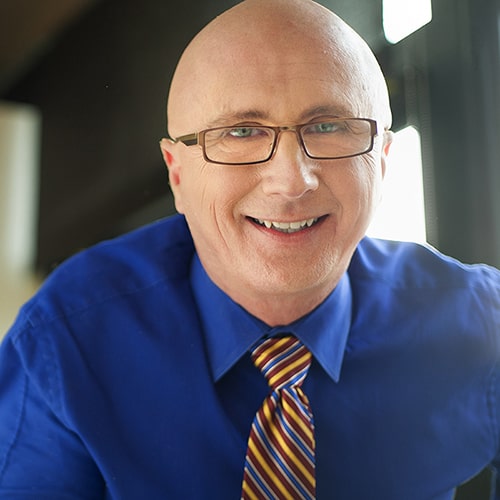If it only takes one to bring down a relationship, then the opposite is equally true. It only takes one to set a course that raises it up.
A marriage, partnership, or friendship is more than chemistry. Whatever it is that we envision as the purpose(s) of a relationship has a tremendous effect on the nature of our behavior within it.
The fiduciary commitment lawyers are charged with, and the duties of full and frank disclosure, care, and loyalty are solid guide posts we can use to set an upward arc.
In practical terms, here’s what the Lawyer’s Relationship Map looks like:
- Serve the highest interest of the relationship.
- Be honest with yourself and your partner and don’t let fear prevent you from telling the other person what you’re longing for, afraid of, or feeling.
- Take simple daily steps to demonstrate the value seen in the other person.
- Being loyal — honor who your partner is and wishes to become.
The Fiduciary Code
The Fiduciary Code is a three-pronged way of seeing relationships that maximizes who you are, while allowing the same for the other person (to the extent they choose it). It’s not about making another person be something they aren’t or choose not to be. It’s also not about letting someone take advantage of you.
And, it’s all relative to the nature of each relationship. What I’m willing to do and be for my wife is different than for a friend or co-worker.
Let’s explore the three prongs of this code in more depth:
1. Full and Frank Disclosure
Duty of Full and Frank Disclosure is not about telling everyone and anyone what you’re feeling and thinking. It’s not about carelessly disclosing vulnerabilities and insecurities or blasting someone with “the truth.”
In order to realize the potential of a relationship, especially ones of a very close nature, you have to be willing to expose not just your hopes and dreams — but your fears, anxieties and insecurities.
In my relationship with my wife, Jan, we have a stated understanding that part of our being together is to help one another live into our greatest potential. This is both simple and terrifyingly difficult.
Generally, the easy part is saying what I want. The hard part is dealing with the “voices in my head” that tell me all the reasons why something can’t happen. That talk is crazy making — all lies and untruths about what I can and can’t do. It’s only through the light of day, telling Jan about them, that they seem to dissipate.
We give our anxieties and fears more power than they truly have when we don’t talk about them. We turn them into walls that stop us from advancing in the experience called life, rather than the “warning — proceed with caution” that they actually mean.
When we don’t know or understand what’s going on with the other person, we start to fill in the blanks with assumptions — which doesn’t serve the best interest of the relationship.
When we’re willing to put ourselves out there and share what’s going on, it both sets an example and creates an environment that facilitates the other person doing the same.
2. Duty of Care
Lawyers aren’t storage units. People don’t bring their problems, concerns, and fears to us so we’ll box them up place them in a storage unit, and turn off the light to let the problem take care of itself.
Our license to practice law can be suspended, and in extreme circumstances taken away, because we failed the fiduciary duty of care.
Words not matched by deeds reveal what truly lies in our heart. When you say “I love you,” “You are important to me,” but do little to demonstrate those words, you send a conflicting message.
Here’s an example: My wife is a wonderful oil painter. For years, I’ve let her know how important her love of painting is to me. Like all of us, she has her demons that get in the way of doing what’s important to her.
While words of encouragement are good, when I back them up by deeds — Jan experiences the true depth of how deeply I treasure her.
I know what gets in the way of her painting — the house being messy, too much entertaining (if you know me, entertaining is one of my go to ways of being), and getting distracted by all that life requires.
While it is true that she’s ultimately responsible for painting or not, there are actions I can do to help create an environment in our home that encourages her to spend time in the art studio. I don’t simply see a dirty kitchen in the morning before I go to work, I see a kitchen that will get in the way of her time in the studio. So, I clean it — not just because I’m supposed to, or because I like it clean — but because I know it will help her paint. When we talk about having people over, I’ll ask, “are we starting to entertain too much?”
When Jan thinks of painting, I want her to know in her heart that she has a partner who values who she is and what’s important to her — in both words and conduct.
3. Duty of Loyalty
This is one of the most powerful forces in our lives. I know when my loyalty is questioned, it cuts deep. Have you ever experienced someone questioning yours?
When my loyalty is acknowledged, it brings a great sense of pride at being part of something bigger than myself. How about you?
Loyalty allows me to see what logic tells me is impossible. It takes me beyond what my eyes see, my ears hear, and my rational mind says is possible. It’s the “transrational express.”
Like faith, it allows us to transcend the limitations that tell us something can’t happen. Without loyalty our ability to do our jobs as a wife, husband, mother, father, or partner is diminished.
When I was writing my book “The Caged Truth” there were times that I had doubt about the magnitude of the task I’d undertaken and my ability to do it right. I had a support group of two other writers, my aunt Jennifer, and Christine, a dear friend. Without their loyalty to the cause I’d undertaken, there is no way I would have finished the book.
When I think about loyalty, I know how it feels. It doesn’t start in my head; it’s in my chest. The more loyalty I have, the bigger my heart feels, the more I want the best outcome, and the better able I am to envision a greater result. I see what others cannot because they aren’t empowered by the impulse of loyalty.
Loyalty is a force we can use to catapult life forward. It’s there waiting for us. It’s not just a power source, but a way of being, that lives inside of us. The more we connect to it, the more we can be ourselves and be there for others in our lives.
The fiduciary code is a roadmap you can follow to help any relationship to flourish. While clearly there is no guarantee that it will save or fix a relationship, it does give a framework for practical changes you can make to help move a relationship to the flourishing side of the spectrum.
It’s not always easy, but few great endeavors are.
Which of the three duties resonates the most with you?






Beautiful!